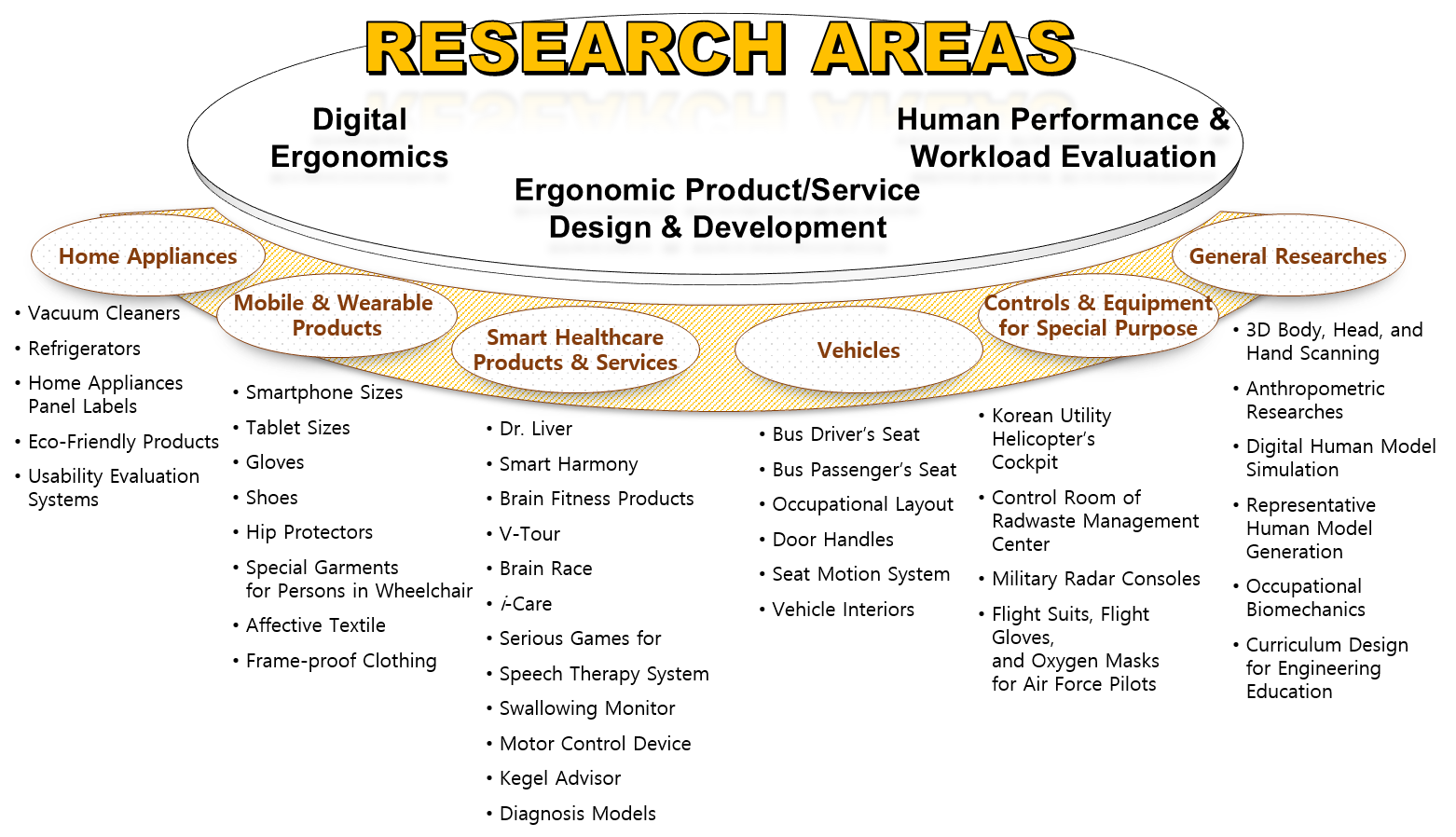Research Areas
The Ergonomic Design Technology (EDT) Lab is dedicated to the development of novel ergonomic methodologies and solutions on engineering design problems for better harmony between humans, systems, environments. We have established collaborative relationships with various research institutions (such as the Department of Clothing and Textiles at Kyungpook National Univ., Department of Neurology at Samsung Seoul Medical Center, and Department of Clothing and Textiles at Yunsei University) and companies (such as Samsung Electronics, Korea Aerospace Industries, and Hyundai Motors) in exploring better understanding and solutions to ergonomic design problems. The major areas of the EDT lab (see Figure 1) include: (1) digital ergonomics (computer-aided ergonomic design & evaluation), (2) ergonomic product design & development, and (3) physical interface design (human performance & workload evaluation).

Research Area #1: Ergonomic Product/Service Design & Development
The EDT lab has developed ergonomic designs of various products including mobile phone, vacuum cleaner, refrigerator, flame-proof clothing, flight glove, and flight suit by applying ergonomic design techniques and guidelines. details...
Research Area #2: Digital Ergonomics
Digital ergonomics refers to the ergonomic design and evaluation of a product using humanoids in a digital environment. The digital ergonomic studies conducted in the EDT lab include helicopter cockpit design, automotive occupant packaging layout design, bus operator’s workstation design, and overhead-crane operating workstation design using Jack. details...
Research Area #3: Human Performance and Workload Evaluation
The EDT lab has developed methodologies and measurement systems that can be applied to the design and assessment of the physical interface between a product and a user. Novel measurement and analysis systems for psychomotor performance, body motion, and hand force exertion have been developed and applied to engineering and medical research. details...
Ergonomic Design Technology Lab, Department of Industrial and Management Engineering
Pohang University of Science and Technology
Cheongam-ro 77, Nam-gu, Pohang, Gyeongbuk, 37673, South Korea
